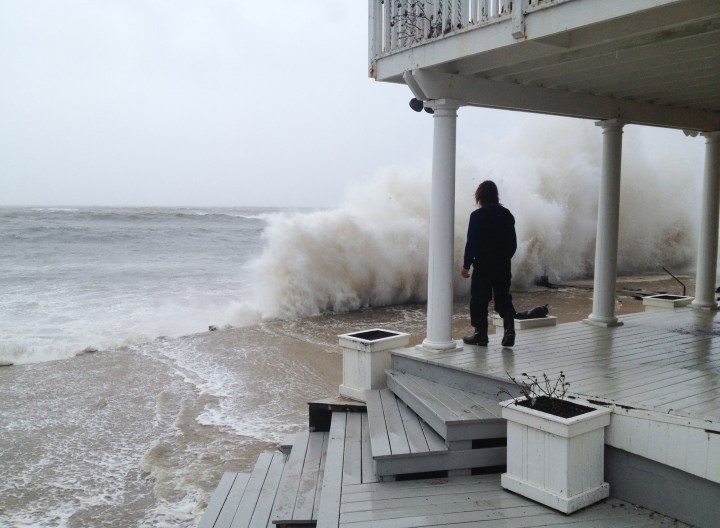
The case for calculating climate risk into retirement plans
The case for calculating climate risk into retirement plans

The typical ad picturing retirement highlights leisure, but people near retirement and early in retirement may find the major life transition difficult. There is so much to consider, from guesstimating how long savings will last to when to claim Social Security.
Now, the people planning for retirement may want to account for an additional factor when choosing a place to settle down: climate change risk. “Several of the most popular retirement Meccas in the U.S., you know, they’re the most vulnerable to global climate change and extreme weather, according to researchers,” said Marketplace senior economics contributor Chris Farrell in an interview with Marketplace’s Sabri Ben-Achour.
The following is an edited transcript of their conversation:
Sabri Ben-Achour: All right, climate change and retirement planning. Make the connection for me.
Chris Farrell: Okay, so we know that climate change is reshaping the economy and society, and that includes retirement planning. And a major reason is the increase in extreme and costly weather disasters. For example, in the first half of the year, there have been nine weather and climate disaster events with losses exceeding $1 billion each in the U.S., and that’s according to the National Center for Environmental Information.
Ben-Achour: So how does that affect retirement? I mean, I guess, in one way it affects where you decide to live. Right?
Farrell: Well, this is one of the biggest issues, right, several of the most popular retirement Meccas in the U.S., you know, they’re the most vulnerable to global climate change and extreme weather, according to researchers. Think Florida, and the risk of rising seas and increased hurricane activity, or Arizona with its record heat waves and drought. So just as financial planners, you know, they recommend people nearing retirement, you know, factor in taxes, amenities, the cost of housing when researching where to live? Well, I would add to that: investigate the potential climate change risks in the area.
Ben-Achour: So climate change is expensive. We know that. But is that not a problem for insurance companies to deal with? Or do you think people should be saving more to deal with disasters like flooding or weather damage?
Farrell: You know, we always say save more, save more. And yes, the answer is, you should save more. But it’s hard to do. I mean, you know, one of the costs of all these extreme weather events with global climate change is that if you’re in an area with a lot of risks, your insurance premiums may be higher, and to qualify for coverage, insurance companies may want expensive changes to the home to make it more resilient to climate change. And then you think about rebuilding a life following an extreme event like wildfires and flood zones. I mean, it takes its toll not only on your finances, but you know, it’s emotionally draining.
Ben-Achour: So if someone hears this and wants to incorporate climate change planning into their retirement planning, what do they do? How do people navigate all this?
Farrell: OK, first of all, congratulations. Second, there’s not a whole lot of research out there yet. But there are resources. The best or one of the most interesting I find is the climate summaries from NOAA that offers up-to-date local perspectives on climate and each state. And Forbes, for example, has factored climate risk into its annual roundup of 25 retirement dream towns. Financial planners are also starting to talk about this more, and it’s a safe bet that the data is going to get more comprehensive.
There’s a lot happening in the world. Through it all, Marketplace is here for you.
You rely on Marketplace to break down the world’s events and tell you how it affects you in a fact-based, approachable way. We rely on your financial support to keep making that possible.
Your donation today powers the independent journalism that you rely on. For just $5/month, you can help sustain Marketplace so we can keep reporting on the things that matter to you.











